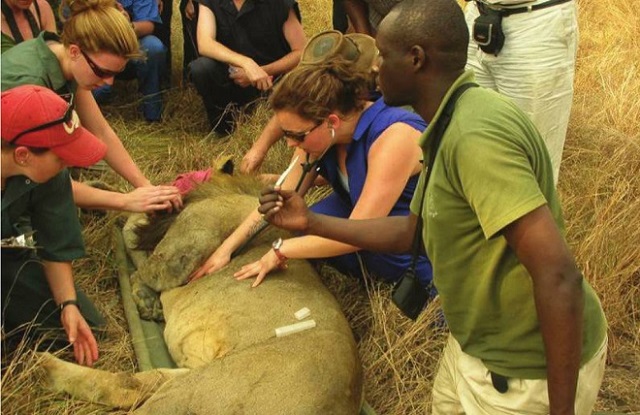
Though poaching is regarded as the main danger for wildlife, there are other factors that kill them, writes Joseph Ondiek
An organisation in Rwanda, the One Health Approach for Conservation (OHAC), is pioneering a new way of conserving the nation’s treasured mountain gorillas and other wildlife.
Founded in 2015 by Jean Felix Kinani, a veterinary doctor, OHAC works in collaboration with the Rwanda Conservation Institution to provide a wide range of programs that ensure the health of the wild animals that are major tourist attraction and push the country to see beyond the gorillas and diversifies to other areas that can equally attract tourists.
Kinani believes that the life of human living close to national parks, the domestic and wild animals – including non-human primates like the Rwanda’s flagship tourist attraction; the mountain gorilla, are inexorably linked.
“When your dog is infected with rabies, it’s going to pose danger to the people in your community around national parks and can infect others animals if it strays into the park, and can bite other carnivores and even the gorilla,” says Kinani, “Everything in the ecosystem is perilously threatened.”
Kinani explains that even though poaching is always regarded as the first suspect when talking about endangered species, there are other factors-which if not immediately and effectively addressed with equal measure-contributes to the mortality rate of the wild animals.
From his now 12 years of literally living with the wild animals in the jungle; treating and taking care of them, he now knows the individual temperaments and feelings of each species, and that not only are they concerned with poachers but also the effect of their health environment .
Kinani says that is why OHAC’s main focus is on One Health program and its approach is simple.
“When you monitor the health of the community around the national parks, train the game wardens on the importance of hygiene, and ensure that other animals are monitored and treated, the entire ecosystem is going to be safer. And this is what we do,” he says.
Kinani says the idea of “One Health” recognises that the health of humans, animals and ecosystems are interlinked. It involves applying a coordinated, collaborative, multidisciplinary and cross-sectoral approach to address potential or existing risks that originate at the animal-human-ecosystems interface.
“For better management of most diseases, vets and medics need to work together,” he explains.
The OHAC focuses on research, training, consultancy and creating One Health and Conservation awareness. Its main goal is to link conservation, health, sustainable development and poverty alleviation.
 The Independent Uganda: You get the Truth we Pay the Price
The Independent Uganda: You get the Truth we Pay the Price



